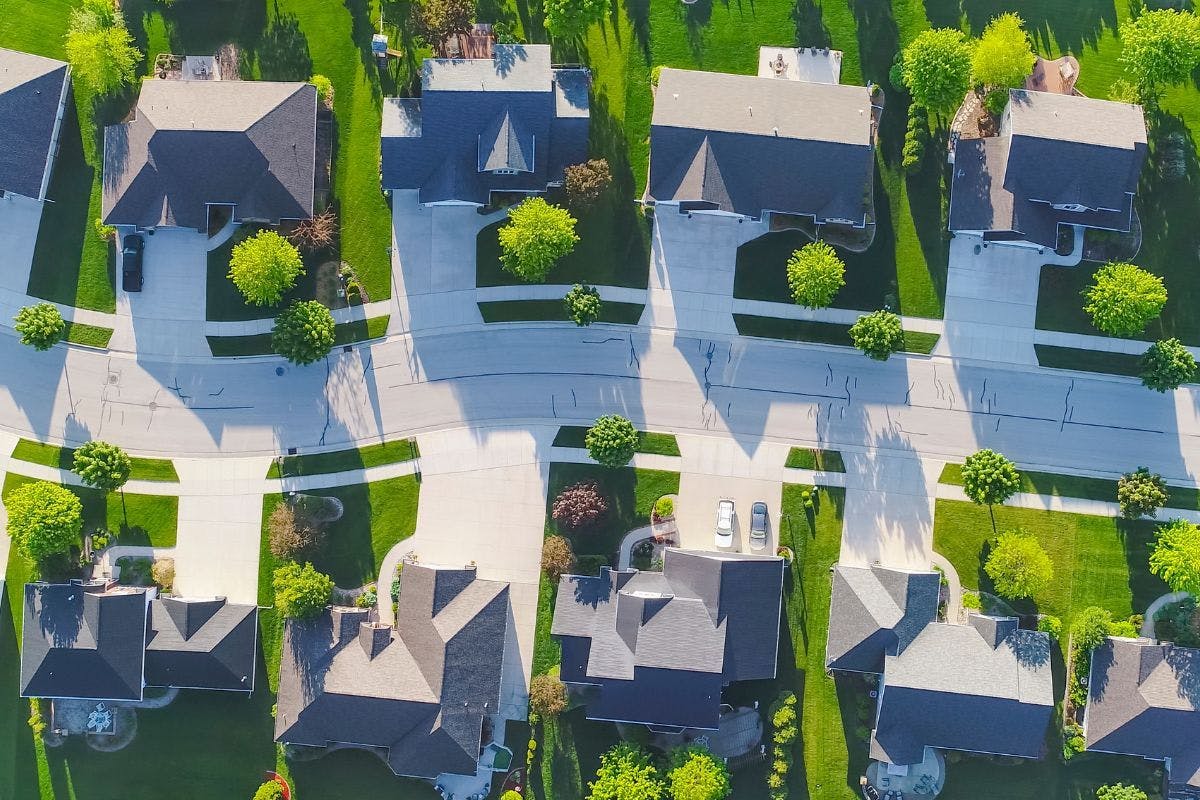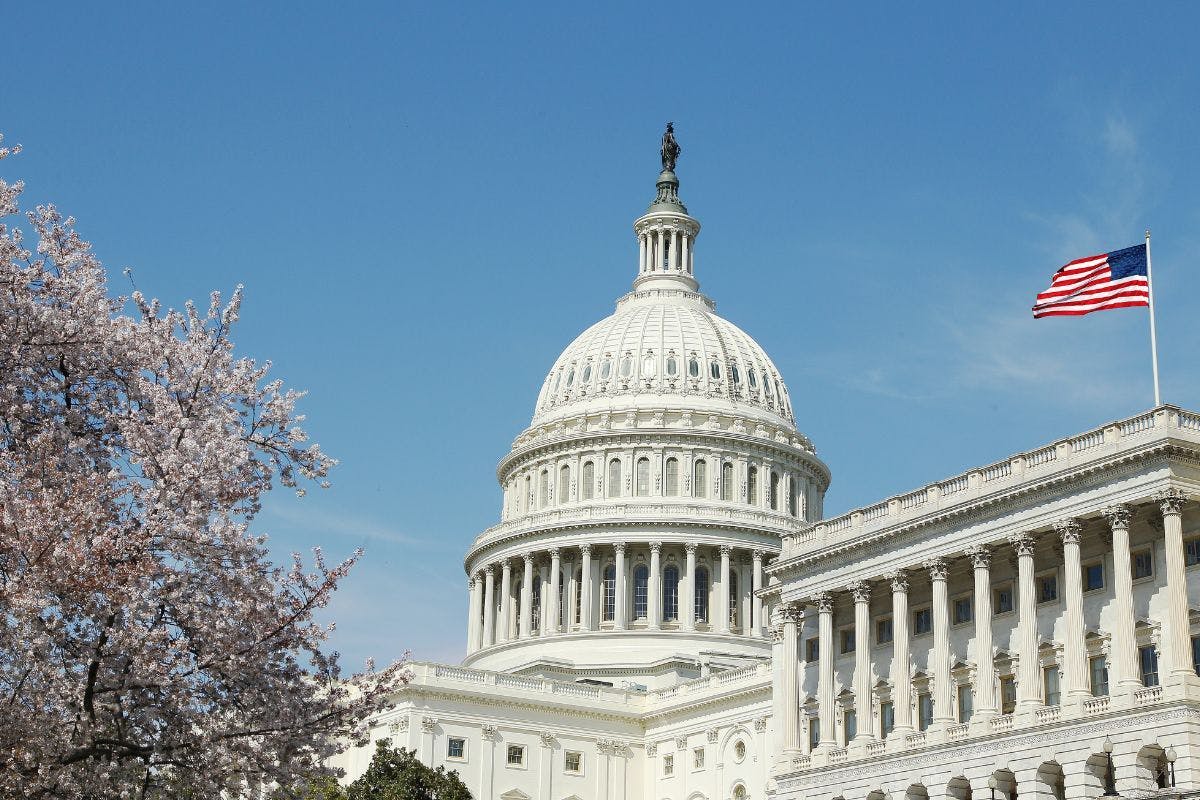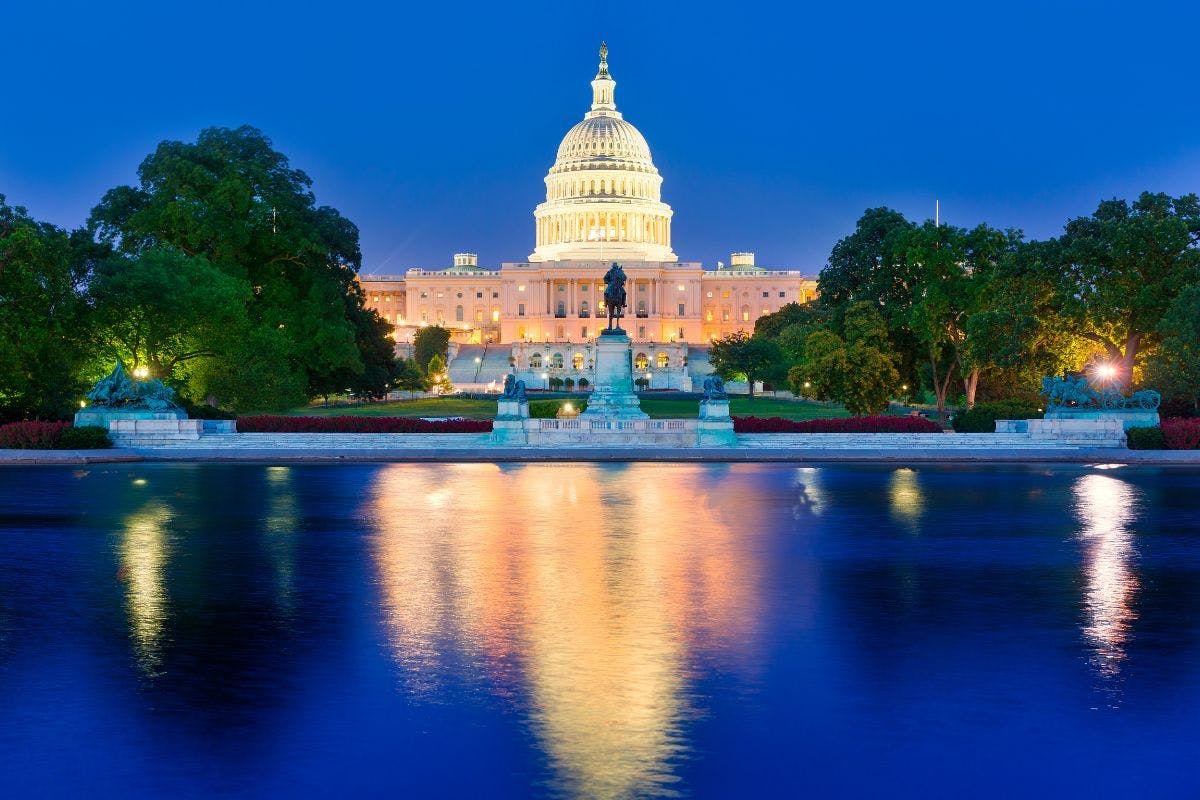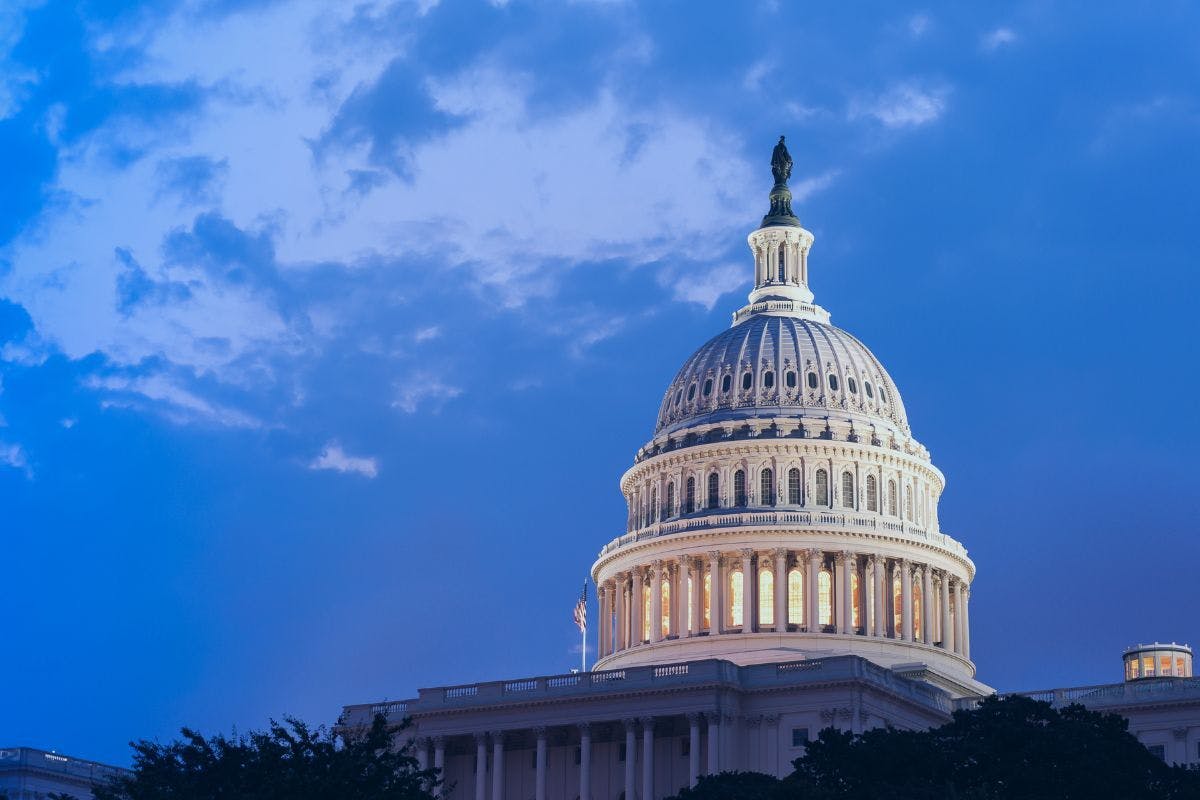Solar Access Laws by State: Can Your HOA Stop Your Solar Panels?
Last edited
Author
Andrew Blok
Electrification and Solar Writer and Editor
Editor
Andrew Giermak
Solar and Electrification Writer and Editor

Home solar panels have a ton of benefits: lower energy bills and higher property value for you and cleaner energy that reduces pollution for everyone.
Not everyone is on board with solar panels, though. Homeowners associations have been a historic friction point. Luckily, many states have passed solar access laws that bar HOAs from banning solar panels.
Here's where those laws exist.
See how much you can save by going solar with Palmetto
What Are Solar Access Laws?
Solar access laws can take different forms but include any law that protects your access to installing solar. That usually means banning a homeowners association from restricting solar panels in a way that significantly affects the cost of solar or the solar panels' performance. Often, the laws let HOAs make reasonable requests for aesthetic or safety purposes. Solar access laws are generally set at the state, county, or city level.
In many places, homeowners can sign solar easements with their neighbors that ensure trees or new structures won’t shade solar panels after their installation.
Solar Access Laws by State
Because state laws change from time to time, it’s best to understand your HOA's policies for yourself and work with an experienced solar company familiar with the state laws. Even among the states with access laws, protections and requirements vary.
Alabama
There are no official solar access or easement laws in Alabama.
Alaska
There are no solar access laws in Alaska, though property owners can create solar easements.
Arizona
With laws dating back decades, Arizona solar access laws were fortified in 2007’s Senate Bill 1254 which states “an association shall not prohibit the installation or use of a solar energy device” but may “adopt reasonable rules regarding the placement of a solar energy device if those rules do not prevent the installation, impair the functioning of the device or restrict its use or adversely affect the cost or efficiency of the device.”
Arkansas
Although Arkansas’s Senate Bill 145 earned the nickname “The Arkansas Solar Access Act” by making it easier to go solar in the state, AR does not have any specific access laws in place that address the power of HOA rules.
California
The California Solar Rights Act “limits the ability of covenants, conditions, and restrictions, typically enforced by homeowner associations (hereinafter “HOAs”), and local governments to restrict solar installations” with many locales enforcing more specific regulations at the city and county level.
Colorado
Colorado’s solar access and easement laws date back to 1979 and were updated by the Colorado Common Interest Ownership Act in 2021. The act “adds specificity to the requirement that HOAs allow installation of renewable energy generation devices (e.g., solar panels) subject to reasonable aesthetic guidelines.”
Connecticut
Added to the Connecticut Clean Air Act in 2023, Connecticut was the last New England state to establish solar access laws, though HOAs “may adopt rules on the size and placement of solar installations.”
Delaware
Established in 2009, Delaware Code Title 25 outlines the state’s solar access laws which limit an HOA’s power to only enforce reasonable restrictions that do “not significantly increase the cost of the roof mounted system for obtaining solar energy or significantly decrease the system’s efficiency or specified performance.”
Florida
The Florida Senate Statute Section 163.04 states “property owner may not be denied permission to install solar collectors or other energy devices by any entity granted the power or right in any deed restriction, covenant, declaration, or similar binding agreement to approve, forbid, control, or direct alteration of property with respect to residential dwellings and within the boundaries of a condominium unit. Such entity may determine the specific location where solar collectors may be installed on the roof within an orientation to the south or within 45° east or west of due south if such determination does not impair the effective operation of the solar collectors.”
Georgia
While Georgia's Solar Easements Act of 1978 allows system owners to negotiate their access to sunlight, there are no HOA-restrictive solar access laws in the Peach State.
Hawaii
Hawaii's Energy Resources Code 196-7 states “no person shall be prevented by any covenant, declaration, bylaws, restriction, deed, lease, term, provision, condition, codicil, contract, or similar binding agreement, however worded, from installing a solar energy device on any single-family residential dwelling or townhouse that the person owns.”
Idaho
Idaho House Bill 158 specifies “no homeowner’s association may add, amend, or enforce any covenant, condition, or restriction in such a way that limits or prohibits the installation of solar panels or solar collectors on the rooftop of any property or structure therein within the jurisdiction of the homeowners association. a homeowners association may adopt reasonable rules regarding the placement of solar panels or solar collectors if those rules do not prevent the installation of the device and pair the functioning of the device or restrict its use or adversely affect the cost or efficiency of the device.”
Illinois
Created in 2021, Illinois' Homeowners' Energy Policy Statement Act enforces that “any power by the governing entity of a homeowners' association, common interest community association, or condominium unit owners' association which prohibits or has the effect of prohibiting the installation of a solar energy system is expressly prohibited.”
Indiana
The House Enrolled Act 1196 fortified solar access laws in Indiana, allowing residents to petition HOAs attempting to deny installations. While HOAs in Indiana “may prohibit the installation, use, or removal of a solar energy system under certain circumstances,” the 2022 bill limits these circumstances and creates a process for homeowners to appeal.
Iowa
While Iowa does not have any HOA-level restrictions, Law Chapter 564A outlines how residents can apply for solar easements.
Kansas
Kansas does not have any solar access laws, but property owners may create solar easements as per statute 58-3801.
Kentucky
Kentucky established solar easement laws in 1982, but the state has not codified any HOA restrictions.
Louisiana
Enacted in HB 751, Louisiana’s solar access law “prohibits any person or entity from unreasonably restricting the right of a property owner to install or use a solar collector.”
See how much you can save by going solar with Palmetto
Maine
Established in 2009, Maine’s Solar Rights give locals the “right to install and use solar energy devices” with prohibition only possible in the event of reasonable restrictions such as public safety and building damage.
Maryland
Maryland Real Property Code §2–119 prohibits HOAs from establishing restrictions or conditions for solar installations that “significantly increase the cost of a solar system, and/or significantly decrease the system’s efficiency.”
Massachusetts
Massachusetts law Chapter 40A states that “no zoning ordinance or by-law shall prohibit or unreasonably regulate the installation of solar energy systems or the building of structures that facilitate the collection of solar energy, except where necessary to protect the public health, safety or welfare.“
Michigan
Michigan enacted a law in 2024 that limited HOAs from restricting home solar panel installations that would increase the cost of a system by $1,000 or decrease its output by 10%.
Minnesota
Minnesota had MN law 500.30 which allows residents to create solar easements, and in 2023 passed a solar access law that allows HOAs to make "reasonable restrictions" on solar panels, but not ban them.
Mississippi
There are no solar access or easement laws in Mississippi.
Missouri
HOAs “may adopt reasonable rules regarding the placement of solar panels or solar collectors to the extent those rules do not prevent the installation of the device or adversely affect its functioning, use, cost, or efficiency” as per Missouri Senate Bill 820.
Montana
There are no solar access laws in Montana, though residents can create solar easements.
Nebraska
Despite proposed bills in the past, there are currently no solar access laws in Nebraska that apply to an HOA’s power.
Nevada
“A governing body shall not adopt an ordinance, regulation or plan or take any other action that prohibits or unreasonably restricts or has the effect of prohibiting or unreasonably restricting the owner of real property from using a system for obtaining solar energy on his or her property” as per Nevada's Solar Easement and Rights Law.
New Hampshire
Although New Hampshire has detailed solar easement laws and efforts have been made to put access laws in place, there are currently no restrictions on HOAs' power to prevent a PV installation in the Granite State.
New Jersey
New Jersey implemented its first statewide solar access and solar easement laws in 2017. The current law limits the authority of HOAs to prohibit solar installations, restricting any “covenant, bylaw, rule or regulation prohibiting the installation of solar collectors” on a property owned by an individual and not the community.
New Mexico
New Mexico’s Solar Rights Act protects residents' access to solar as a “property right,” voiding covenants and restrictions from preventing reasonable PV installations.
New York
“A homeowners' association may not adopt or enforce any rules or regulations that would effectively prohibit, or impose unreasonable limitations on, the installation or use of a solar power system” as per New York's Senate Bill S4742A.
North Carolina
Established in 2007, North Carolina's Senate Bill 670 created NC solar access laws enforcing that “no city ordinance shall prohibit, or have the effect of prohibiting, the installation of a solar collector that gathers solar radiation as a substitute for traditional energy for water heating, active space heating and cooling, passive heating, or generating electricity for a detached single-family residence” with a few unique exceptions.
North Dakota
While North Dakota solar easement laws allow state residents to create easements, there are no HOA access regulations in place.
Ohio
Effective in 2022, Senate Bill 61 codified solar access laws in Ohio. “Unless specifically prohibited in the declaration, an owner may install a solar energy collection device on the owner’s dwelling unit…” In addition, HOAs may make “reasonable restrictions concerning the size, place, and manner of placement of solar energy collection devices.” HOAs can still ban solar panels, but doing so requires an adjustment to the HOA declaration, which has a higher vote threshold than a board vote.
Oklahoma
There are no residential solar access laws in Oklahoma.
Oregon
Oregon law states that attempts to prohibit solar access are “void and unenforceable as a violation of the public policy to protect the public health, safety, and welfare of the people of Oregon.” Like many other states, the statute (94.778 - Prohibition against installation of solar panels void and unenforceable) also includes the provision that HOAs may impose “reasonable size, placement or aesthetic requirements.”
Pennsylvania
Pennsylvania does not have any solar access laws.
Rhode Island
Although Rhode Island residents can create solar easements, there are no statewide solar access laws that HOAs must follow.
South Carolina
There are no solar access laws that restrict HOA power in South Carolina.
South Dakota
South Dakotans can establish solar easements, but there are not any access laws in place statewide.
Tennessee
Tennessee does not have any laws rewarding HOA restrictions to prevent solar access, however, the state does allow residents to create solar easements.
Texas
Barring exceptions such as threats to public safety, Texas Property Code 202.010 states that “a property owners ’ association may not include or enforce a provision in a dedicatory instrument that prohibits or restricts a property owner from installing a solar energy device.”
Utah
Utah Solar Access Code outlines the reasonable restrictions HOAs can place on solar panel systems, including specific language that relates to standalone homes and property owners of a “dwelling attached to other dwellings.”
Vermont
Established in 2009, Vermont State Law § 544 enforces that “No deed restrictions, covenants, or similar binding agreements running with the land shall prohibit or have the effect of prohibiting solar collectors, clotheslines, or other energy devices based on renewable resources from being installed on buildings erected on the lots or parcels covered by the deed restrictions, covenants, or binding agreements.”
Virginia
Taking several forms since the policy was originally enacted in 2008, Virginia Law § 55.1-1820.1 states “no association shall prohibit an owner from installing a solar energy collection device on that owner's property unless the recorded declaration for the association establishes such a prohibition.“
Washington
RCW 64.38.055, commonly referred to as the Washington Solar Rights Law, prohibits HOAs from blocking solar panel installations that meet “applicable health and safety standards and requirements imposed by state and local permitting authorities.”
West Virginia
WV Code § 36-4-19 protects access rights, noting any HOA covenant, restriction, or condition “that effectively prohibits or restricts the installation or use of a solar energy system is void and unenforceable.”
Wisconsin
Wisconsin law 236.292 states “All restrictions on platted land that prevent or unduly restrict the construction and operation of solar energy systems” are void, including those enforced by HOAs and deed restrictions.
Wyoming
Although there are no specific solar access laws in the Cowboy State, the Wyoming Solar Rights Act (Chapter 22) defines solar rights as “property rights” that cannot be denied within reason by local governments.
Washington, D.C.
Washington DC’s solar access laws are found in the District of Columbia Code § 8–1774.51, which limits the “authority of homeowners associations, condominium owners associations, and cooperative housing associations to prohibit the installation and use of solar energy collection devices.
US Territories
Solar access laws prevent HOA restrictions in the U.S. Virgin Islands.
Getting Permission From an HOA to Install Solar
Even if you live in a state with solar access laws, you may need to work with your homeowners association to get your new solar panels approved and installed. You may need to fill out paperwork and submit plans to your HOA for their approval. Remember, solar access laws often leave exceptions for “reasonable restrictions” on a solar system.
An experienced and reputable solar installer can support you through this process.
To learn how much you can save with solar panels at your home, use Palmetto’s solar savings estimator.
See what solar can do for you:
Frequently Asked Questions
Can my HOA keep me from installing solar panels?
Many states have passed solar access laws that keep HOAs and other entities from prohibiting you from installing solar panels, though they may place reasonable restrictions on a system. In other states, HOAs may have that ability. Even in states with laws protecting your right to go solar, HOAs may require you to submit an application for their review.
Am I always allowed to install solar panels on my roof?
In some states lacking solar access laws, an HOA or housing covenant may have the authority to ban you from installing solar panels. Depending on the age and material of your roof, you may have trouble finding a company that will install solar panels without the roof being replaced.
What is the difference between solar access laws and solar easement laws?
While access laws limit building and zoning restrictions on solar panels, easement laws exist for homeowners to legally maintain their access to adequate sunlight in agreement with other property owners.
Is solar illegal in any state?
No, although lacking access laws can allow homeowner associations (HOAs) and other organizations to deny installations, solar panels are legal everywhere in the United States. With that being said, unpermitted systems are illegal to operate in many American jurisdictions, even in states with solar access laws.
Disclaimer: This content is for educational purposes only. Palmetto does not provide tax, legal, or accounting advice. Please consult your own tax, legal, and accounting advisors.


